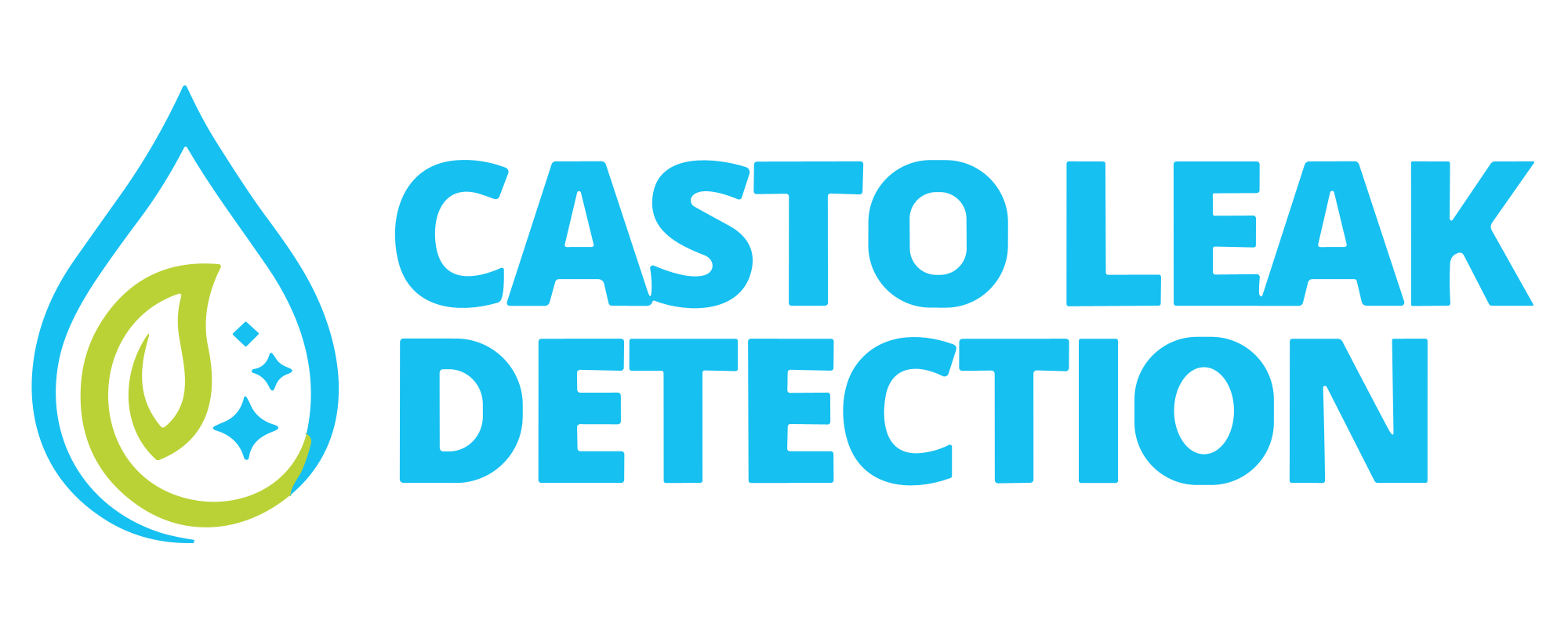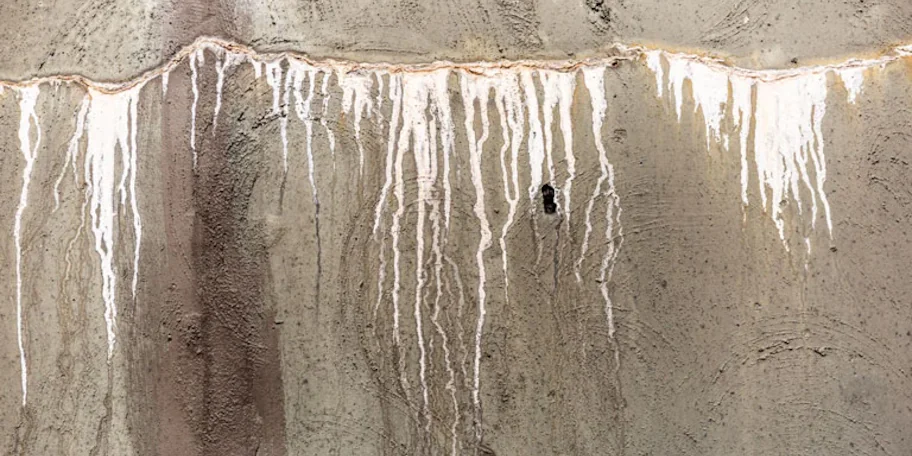Concrete slab leak repair is a critical process for maintaining the integrity of your home. Slab leaks can cause significant damage if not addressed promptly, affecting your foundation, health, and finances. This comprehensive guide will walk you through everything you need to know about detecting, repairing, and preventing concrete slab leaks.
Understanding Concrete Slab Leaks
What is a Concrete Slab Leak?
A concrete slab leak occurs when the plumbing pipes embedded within or beneath a concrete foundation begin to leak. These leaks can go unnoticed for a long time because they are hidden under the slab. Over time, the water can cause severe damage to the foundation and the structure of your home.
Common Causes of Slab Leaks
Several factors can lead to concrete slab leaks. The most common causes include corrosion of pipes due to chemical reactions with soil, abrasion from pipes rubbing against concrete, poor installation, and shifts in the foundation. Understanding these causes can help in preventing future leaks.
Identifying Slab Leaks Early
Early identification of slab leaks is crucial to minimize damage. Look for signs such as unexplained increases in water bills, damp spots on floors, the sound of running water when all faucets are off, and cracks in the walls or floors. Early detection can save you from costly repairs.
The Impact of Concrete Slab Leaks
Structural Damage
Concrete slab leaks can compromise the structural integrity of your home. The constant flow of water can erode the soil underneath the foundation, causing it to shift and crack. This can lead to uneven floors, cracked walls, and doors and windows that don’t close properly.
Health Hazards
Slab leaks create a moist environment conducive to mold growth. Mold can spread throughout your home, affecting indoor air quality and posing serious health risks such as respiratory issues, allergies, and other health problems. Addressing slab leaks promptly can prevent these health hazards.
Financial Costs
The financial impact of concrete slab leaks can be substantial. Repair costs can escalate quickly if the leak is not detected early. Besides the cost of repairing the leak itself, you may also need to address water damage to flooring, walls, and personal belongings, which can be quite expensive.
How to Detect a Concrete Slab Leak
Visual Inspection Techniques
One of the first steps in detecting a slab leak is to conduct a thorough visual inspection. Look for signs of water damage such as damp spots, discoloration on floors and walls, and cracks. Pay close attention to areas around plumbing fixtures and appliances.
Acoustic Detection Methods
Acoustic detection involves using specialized equipment to listen for the sound of water escaping from pipes. Professionals use sensitive listening devices to pinpoint the exact location of the leak. This method is effective in detecting leaks that are not visible to the naked eye.
Professional Leak Detection Services
When in doubt, it’s best to hire a professional leak detection service. Experts have the tools and experience to accurately locate slab leaks. They can use a combination of methods, including thermal imaging and electronic leak detection, to find leaks quickly and efficiently.
Tools and Materials Needed for Concrete Slab Leak Repair
Essential Tools
For a DIY concrete slab leak repair, you’ll need essential tools such as a jackhammer to break through the concrete, a pipe cutter, a wrench, and a soldering torch for metal pipes. Having the right tools on hand can make the repair process smoother and more efficient.
Materials Needed
Depending on the nature of the leak, you may need materials such as replacement pipes, pipe fittings, epoxy putty for sealing small leaks, and concrete patching compound. It’s important to use high-quality materials to ensure a lasting repair.
Safety Equipment
Safety should always be a priority when performing slab leak repairs. Essential safety equipment includes protective eyewear, gloves, a dust mask, and ear protection. This equipment will protect you from potential hazards such as flying debris and dust.
DIY vs. Professional Concrete Slab Leak Repair
Pros and Cons of DIY Repair
DIY concrete slab leak repair can save money, but it requires a certain level of skill and knowledge. The main advantage is cost savings, but the disadvantages include the risk of improper repair, the potential for further damage, and the time and effort involved.
When to Hire a Professional
Hiring a professional is advisable for extensive leaks or if you’re unsure about your ability to complete the repair correctly. Professionals have the expertise to handle complex repairs and ensure the job is done right the first time, preventing future issues.
Cost Comparison
Comparing the costs of DIY and professional repairs is essential. While DIY repairs might seem cheaper initially, the potential for mistakes and further damage can lead to higher costs in the long run. Professional repairs come with a higher upfront cost but offer peace of mind and quality assurance.
Step-by-Step Guide to DIY Concrete Slab Leak Repair
Preparing the Area
Before starting the repair, clear the area of furniture and personal belongings. Ensure the floor is dry and clean. If necessary, use plastic sheeting to protect surrounding areas from dust and debris.
Locating the Leak
Use a combination of visual inspection and acoustic detection to locate the leak. Mark the exact spot on the concrete where the leak is detected. This will help you know where to break through the slab.
Repairing the Leak
Carefully break through the concrete using a jackhammer. Once you reach the leaking pipe, assess the damage. Cut out the damaged section of the pipe and replace it with a new piece. Use appropriate fittings and soldering techniques to secure the new pipe in place. After repairing the pipe, patch the concrete and allow it to cure.
Professional Concrete Slab Leak Repair Methods
Epoxy Pipe Coating
Epoxy pipe coating involves applying a protective layer inside the pipes to seal leaks. This method is minimally invasive and can extend the life of your plumbing system. It’s ideal for minor leaks and can prevent future leaks from occurring.
Pipe Rerouting
Pipe rerouting is a solution when the leaking pipe is not easily accessible or if multiple leaks are detected. This method involves installing new pipes that bypass the leaking section. It’s a more extensive repair but can be a permanent solution to ongoing issues.
Pipe Replacement
In cases where the pipes are severely damaged or corroded, complete pipe replacement may be necessary. This method involves removing the old pipes and installing new ones. Although it’s the most invasive option, it provides a long-term solution to slab leak problems.
Preventing Future Slab Leaks
Regular Maintenance Tips
Regular maintenance of your plumbing system can help prevent slab leaks. Schedule annual inspections with a professional plumber to check for signs of wear and tear. Address minor issues before they escalate into major problems.
Soil Stabilization Techniques
Soil movement is a common cause of slab leaks. Implementing soil stabilization techniques such as proper drainage and landscaping can help prevent the ground from shifting and causing damage to your foundation and pipes.
Advanced Leak Detection Technology
Utilize advanced leak detection technology to monitor your plumbing system. Smart leak detectors can alert you to potential leaks before they become significant problems. Investing in this technology can save you from costly repairs down the line.
Cost of Concrete Slab Leak Repair
Factors Affecting Repair Costs
Several factors can influence the cost of concrete slab leak repair, including the location and severity of the leak, the method of repair, and whether you choose DIY or professional services. Understanding these factors can help you budget for the repair.
Average Cost Estimates
On average, concrete slab leak repairs can cost anywhere from $500 to $4,000, depending on the complexity of the repair. Minor leaks may be less expensive to fix, while major repairs involving pipe replacement or rerouting can be more costly.
Tips to Reduce Costs
To reduce the cost of concrete slab leak repair, consider preventive maintenance, early detection, and addressing issues promptly. DIY repairs can save money, but weigh the risks and benefits before attempting a repair yourself. Always get multiple quotes from professionals to ensure you’re getting a fair price.
How to Choose a Professional Slab Leak Repair Service
What to Look For
When choosing a professional concrete slab leak repair service, look for licensed and insured contractors with experience in concrete slab leak repairs. Check their credentials and ensure they have a good reputation in the industry.
Questions to Ask Potential Contractors
Before hiring a contractor, ask important questions such as their experience with slab leaks, the methods they use, and their estimated time for completion. Inquire about warranties and guarantees on their work to ensure you’re covered in case of future issues.
Checking References and Reviews
Always check references and read reviews from previous clients. This can give you an idea of the contractor’s reliability and quality of work. Positive feedback from satisfied customers is a good indicator of a trustworthy service provider.
Real-life Case Studies
Successful DIY Repair Stories
Many homeowners have successfully tackled concrete slab leak repairs on their own. For example, John from Texas detected a slab leak early and used epoxy putty to seal a small crack in his pipe. His proactive approach saved him hundreds of dollars in potential damage.
Professional Repair Successes
In another case, a homeowner in California faced a severe slab leak that caused significant water damage. Hiring a professional service, they opted for pipe rerouting. The repair was completed efficiently, and the homeowner was pleased with the quality and speed of the service.
Lessons Learned
From these case studies, the key takeaway is the importance of early detection and taking prompt action. Whether you choose to DIY or hire a professional, addressing slab leaks quickly can prevent extensive damage and save money in the long run.
FAQs About Concrete Slab Leak Repair
Commonly Asked Questions
- What are the first signs of a slab leak?
Look for increased water bills, damp floors, and the sound of running water when taps are off.
- Can slab leaks cause structural damage?
Yes, prolonged leaks can weaken your foundation and cause significant structural issues.
- Is it possible to prevent slab leaks?
Regular maintenance and monitoring can help prevent slab leaks.
- How do professionals detect slab leaks?
They use advanced techniques like acoustic detection and thermal imaging.
- Is DIY slab leak repair safe?
It can be, but it requires knowledge and the right tools. Consider hiring a professional if unsure.
- How long does slab leak repair take?
It depends on the severity of the leak and the repair method. It can range from a few hours to a few days.
- What is the cost of professional slab leak repair?
It varies but typically ranges from $500 to $4,000.
- Can I use my home insurance to cover slab leak repairs?
It depends on your policy. Check with your insurance provider.
- What are the long-term solutions for slab leaks?
Long-term solutions include pipe rerouting and replacement.
- How often should I inspect my home for slab leaks?
Annual inspections by a professional plumber are recommended.
Conclusion
Concrete slab leak repair is essential for maintaining your home’s integrity. Early detection, understanding the causes, and choosing the right repair method are crucial steps in addressing slab leaks.
Always prioritize safety during repairs and consider professional help for complex issues. Regular maintenance and advanced leak detection technology can prevent future leaks.
Don’t ignore the signs of a slab leak. Take action promptly to protect your home from structural damage and health hazards. Whether you choose to DIY or hire a professional, addressing slab leaks early can save you from costly repairs and ensure a safe, leak-free home.







